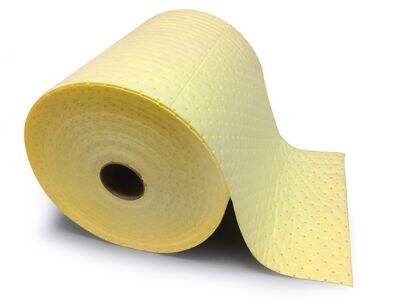Now, since we are talking about wastewater here, it's really important that we keep in mind how dangerous this muck can be for the environment and how essential drain field filters are for the process of cleaning it up a little bit. Every time you flush the toilet or do the dishes, that water has to go somewhere. You came to the right place – Jiahe, a company that manufactures drain field filters, can help you discover which one is right for your needs and property.
The Best: Why Drain Field Filters are Important
Just like when you flush the toilet or wash your dishes, dirty water travels through pipes into a special tank known as a septic system. The system is designed to purify and treat the water, so it can leave your property safely, and return to nature. A key component of this cleaning process is the drain field filter. This filter is important because it filters bits of food, paper, hair and other debris that can be in the water before it leaves your property. Without this filter, toxic substances from these and other sources could find their way into the ground and potentially infect plants, animals and, ultimately, our drinking water."
Different Types of Drain Field Filters
There are different types of drain field filters, and it is important to know about these. Some of the most effective types include sand filters, mound systems, and peat filters. Sand filtration is the passage of wastewater through a sand bed. The sand will filter out dirt as water passes through. Mound systems are somewhat like sand filters but are applied when your lot is irregularly shaped. They are essentially located above the soil level in a mound so that there can be a better passageway for water. Peat filters, on the other hand, have compressed peat moss. More common in areas where other types of filter won't work as well As with any type of filter, benefits of each will become clear according to the specificity of use.
Things to Consider When Picking Out a Drain Field Filter
There are a few very important factors you want to look out for when choosing your drain field filter. Firstly, have an idea as to what you're looking to spend. Some filters will be more expensive than others, but they may also be more effective and can end up saving you money in the long run. You also have to consider the size of your septic system and its water load capacity. Inefficient systems are not able to keep up with their data, where as systems that are quite absorptive of data could make use of filtering cut down on unnecessary processing – but both need the right sort of filter at the right time. Twitter handles are the @usernames. The available space will determine which kind of filter will be the most applicable for you.
Drain Field Filter Size and Design Selection
The correct size and design of the drain field filter is crucial and will depend on your specific needs. If your septic system doesn’t get a lot of water, a simple sand filter may fill the bill. But in the case of larger properties, with bigger septic systems, a more complex filter system might be more appropriate for ensuring everything is properly handled. This is in which manner Jiahe will walk you through the decision making and ensure exactly what you need for your property in order to help you determine what best suits you with your new filter.
How To Care For Your Drain Field Filter
This is what to do with your drain field filter once installed to maintain it in optimal working order for years. That means cleaning it regularly and ensuring it doesn't get blocked up with debris like leaves, dirt or food particles. If the filter becomes clogged, it won't be able to do its job, and that can cause bigger problems down the road. Please contact your Jiahe representative to set up a good maintenance plan for your filter system. They can also advise on its cleaning frequency and after every use on what to do in order to stay as long as possible in its best condition.
Ultimately, the drain field filter you choose is what will ensure that the environment is not tainted with wastewater. You can contribute to saving our planet by knowing about the different types of filters, considering your budget and septic system dimensions, choosing the right filter dimensions and designs, and maintaining it well. To learn more about how we can assist you in finding the filter best suited for your needs, call Jiahe today!

































